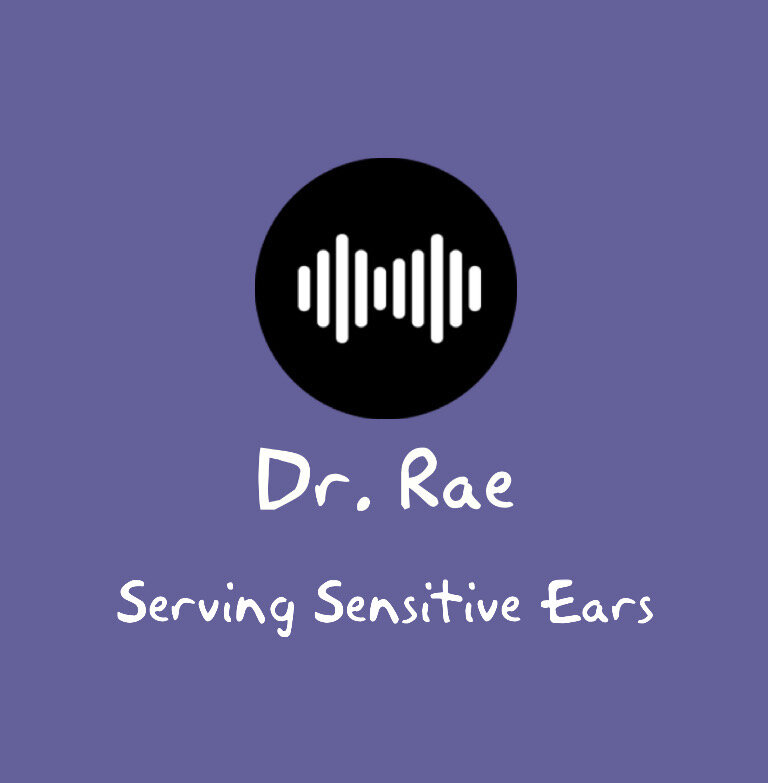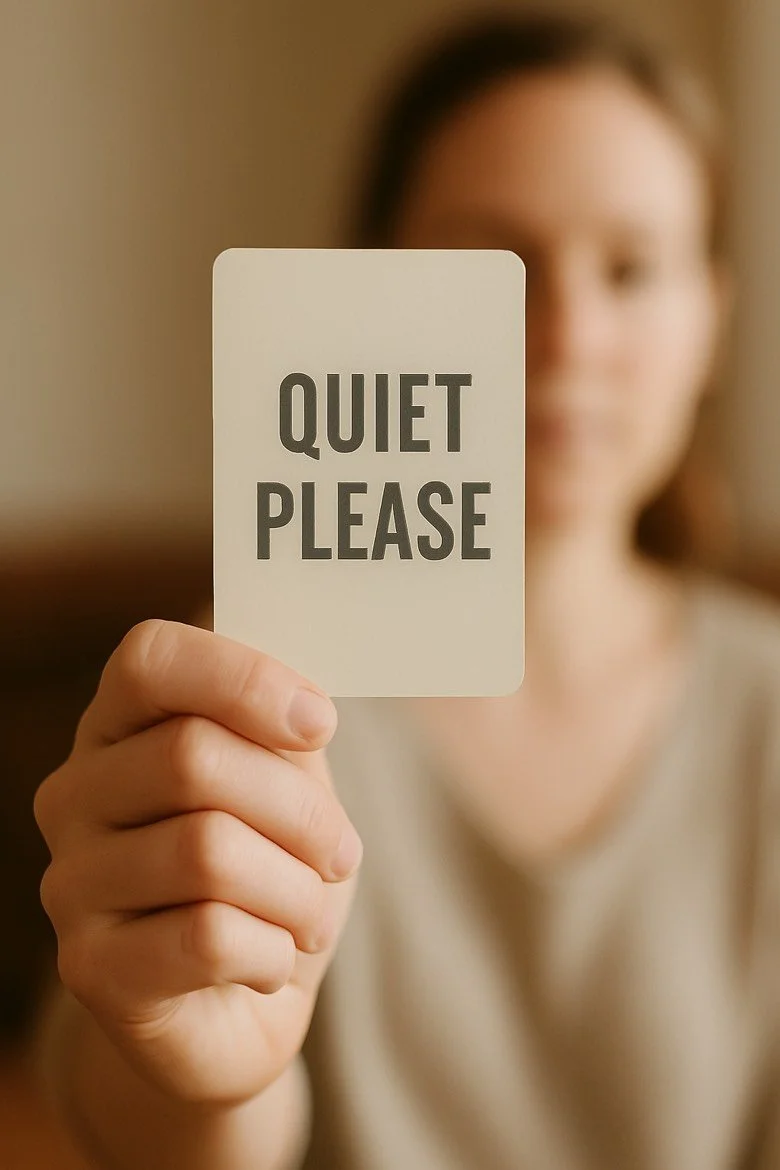Welcome to Dr. Rae’s APD and Sound Sensitivities Blog!
I’m glad you’re here. This blog is where I share stories, insights, and resources on hearing, sound sensitivity, neurodivergence, and the ways our sensory systems shape daily life.
If you’re looking for something specific, try the search bar to the right of this page. You can type in keywords, topics, or phrases, like “auditory processing,” “misophonia,” or “low-gain hearing aids,” and the search will bring up all related posts. It’s a quick way to explore exactly what you’re curious about without scrolling through every article.
Please take your time to browse around…
I hope you find something here that resonates with you!
If you have any requests for new blog topics, please let me know at dr.rae@drraestout.com.
When You See the Behavior, Look for the Sensory Roots
Alex is not just explosive. He is anxious, fearful, and easily triggered, always on a hair’s edge. He can enjoy a place like Chuck E. Cheese for an hour, then suddenly hide in the bathroom, unable to handle another minute. This is not because he is “too sensitive” in some casual, dismissive sense. It is because every sound, every movement, every shift in the environment lands in his nervous system like a blow.
Cognitive Profiles in Dyslexia: Why Auditory Processing isn’t Always the Primary Issue
In dyslexia (and likely APD), actial auditory processing isn’t always the biggest challenge. Skills like working memory, long-term memory, and processing speed can be even weaker. Strengthening these areas often helps listening skills too.
Professionals like Amy Bodkin, that is, neuropsychologists or educational psychologists, and cognitive training specialists like Michelle Hecker Davis can be great partners in this process.
Virtual APD and Sound Sensitivity Care That Fits
Some children and adults need listening evaluations and support in spaces that look nothing like a clinic booth. The hum of fluorescent lights, the long drive, the new building full of echoes, all of it can make testing harder and results less accurate.
When we meet people where they are, in environments that feel familiar and safe, the listening picture changes.
Virtual care, when it is an option, makes that possible. It can happen at a kitchen table, in a quiet bedroom, or in a favorite chair by the window. The setting is already theirs, which means the energy that would have gone into navigating a new space can go toward listening, learning, and problem solving.
PULLING OUT THE THUMBTACKS: Rethinking Accommodations That Make Students More Sensitive, Not Less
A student I worked with had misophonia so severe that sniffing noises from classmates triggered aggressive outbursts. The school’s solution was to place him alone in the hallway to eliminate triggers.
At first, it seemed to help. But without the natural masking of classroom noise, his threat detection system began scanning for sounds that weren’t there. Faint noises became exaggerated. He developed compulsive checking behaviors, then began experiencing auditory hallucinations.
When You’re Never “Enough”: A Neurodivergent Journey Through Deaf Purity Politics
To Everyone Who’s Been Pushed Out
If you’ve been told you’re not “Deaf enough,” not “fluent enough,” not “authentic enough,” I want you to know you’re not alone.
So many of us are denied the tools, the languages, and the belonging that could change everything because of purity politics that exclude far more people than they protect.
Maybe it’s time to stop asking for permission.
Use what works. Build your own supports. Speak your own truth.
ASL is my language. I don’t need to justify that to anyone.
I am enough. And so are you.
Exactly as we are.
Communication Connections Salon 8-12-2025: Breaking Down Silos: What Happened When APD Experts, Parents, and AI Developers Got Together
Today I hosted a Zoom discussion that started with auditory processing disorder (APD) and ended up covering everything from artificial intelligence (AI) ethics to therapy trauma. Sometimes the best conversations are the ones that refuse to stay in their lane.
This group perfectly demonstrated why flexible conversations matter. Instead of staying scripted to one topic, we explored wherever the expertise in the room took us. And what a wide range of expertise it was.
The participants included parents navigating complex diagnoses, burned-out special educators, a tech developer building neurodivergent-led AI tools and resource communities, AAC specialists, myself as an AuDHD audiologist who pioneers low-gain hearing aids for children with normal hearing thresholds but auditory processing difficulties and sound sensitivities like misophonia and hyperacusis (common in autism and ADHD), a student heading into an MSW program who comes from an autism treatment background, and a former daycare owner with special education experience (and an autistic son plus a son who struggles with mental health) who now works as a bookkeeper specializing in neurodivergent business owners.
Forbrain ($300) vs LGHA ($5-8k)?!
Remember that Forbrain bone conduction headset I mentioned? The one that was supposed to arrive but got lost somewhere between their warehouse and my mailbox? Well, plot twist: I decided to turn my shipping mishap into a business opportunity.
Instead of just grumbling about missing packages (okay, I did a little grumbling), I reached out to Forbrain directly. My pitch was simple: “Hey, I already wrote about your product sight unseen, got people interested in your free APD screening tool, and have an audience of patients, parents, and professionals who could benefit from an honest review. How about we make this work for both of us?”
What I Offered Them:
A genuine review from someone who actually understands auditory processing
Promotion to my podcast audience and social media followers
Sharing with autism/ADHD communities where this could genuinely help
Professional credibility as an audiologist who works with APD patients daily
Full transparency: I plan to return it or donate it to someone in the community - I don’t like being bribed, but I am happy to find out if it’s a decent product
Distorted Hearing? Hearing Aids as a Screening Tool for ANSD vs APD: Closing Gaps in Reflex and ABR Testing
We have had some great discussions lately about auditory neuropathy spectrum disorder (ANSD) and auditory processing disorder (APD). ANSD involves desynchrony in the nerve signal, while APD affects how the brain processes sound. Both can cause similar struggles, such as difficulty understanding speech in noise, which makes them tricky to tell apart.
The gold standard for ruling out ANSD includes auditory brainstem response (ABR) testing and acoustic reflex thresholds. As members here have pointed out, especially Reverse Slope(a.k.a., Dan Schwartz), an ANSD expert, FB admin, electrical engineer, and hearing aid dispenser, in cases of reverse slope hearing loss (where low frequencies are more affected), reflex threshold testing is key for spotting potential neural issues. Unfortunately, many families come to me without this information. Sometimes they only have pass or fail reflex results, and often they have no reflex data at all.
Connections Salon: Flipping the Burden—Make the School Prove Your Child Does Not Qualify
Our Connections Salon is a space where parents, neurodivergent and disabled adults, professionals, and advocates come together to share real experiences and practical solutions for disability-related challenges in education and daily life. It is an open, cross-disciplinary discussion, and the strategies shared often become powerful tools that members can take straight into IEP meetings, eligibility hearings, and advocacy efforts.
During our Connections Salon on August 8, 2025, one of the most powerful discussions centered on a familiar problem. A parent is told their child “does not meet eligibility” for a program or service, and the responsibility is quietly shifted to the family to prove they qualify or accept the denial.
Before It’s Too Late: Catching Language and Listening Challenges Upstream
TLDR: We are failing children with hearing challenges, and most people do not even realize it.
Imagine a d/Deaf child raised without sign language, relying only on listening and lipreading. Years later, they finally get an ASL interpreter, but no one has actually taught them ASL. When they still struggle, the school decides that “sign language doesn’t work.” It sounds absurd, but this happens all the time.
We do the same thing with cochlear implants, hearing aids, and yes, auditory training. When a tool fails, we blame the tool instead of asking whether it was ever set up to succeed in the first place.










